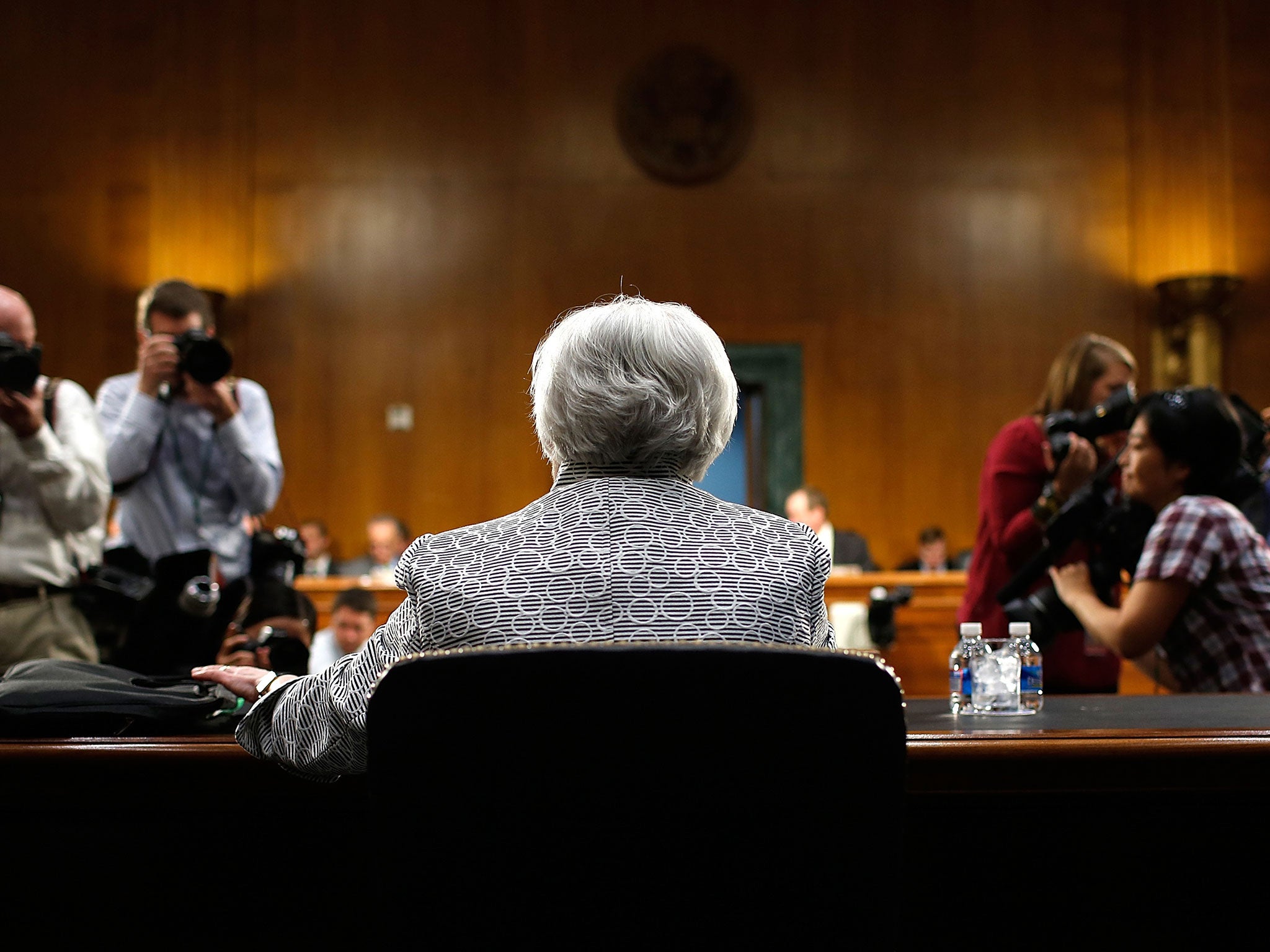Pound soars as inflation leaps and Fed chief Janet Yellen talks down US economy
The latest data comes against the backdrop of a buoyant jobs market and an economy growing at its fastest annual pace since 2007

The pound surged to new six-year highs against the dollar last night as an inflation shock fuelled expectations of UK interest rate rises while a dovish Federal Reserve chair Janet Yellen warned over “false dawns” for the US economy.
A surprise rise in the Bank of England’s Consumer Prices Index benchmark from 1.5 per cent to 1.9 per cent in June – the biggest monthly increase since October 2012 – caught the City off-guard and sent sterling racing nearly a cent higher against the dollar.
Then Ms Yellen’s comments in the afternoon to the Senate Banking Committee – in which she stressed that rates would stay at rock-bottom levels for “some time” to support a recovery “not yet complete” – sent the pound as high as $1.7192 against the dollar, the highest since October 2008.
The Office for National Statistics said the sudden increase in the cost of living in the UK was partly driven by rising clothes prices, which contrasted with last year when shops responded to dismal weather with deep price cuts. Food costs also edged higher as 11 of the ONS’s 12 broad categories of goods and services registered price increases.
The inflation figures were accompanied by alarming signals from the housing market as UK average prices leapt 10.5 per cent in the year to May – with London prices up a record 20.1 per cent on last year.
The Bank of England’s Governor Mark Carney stressed to MPs on the Treasury Select Committee that the timing of the first interest rate rise would be “driven by the data”, adding that the latest rise brought the cost of living into line with the Bank’s May quarterly forecasts.
But the latest data comes against the backdrop of a buoyant jobs market and an economy growing at its fastest annual pace since 2007. “Given the solid economic outlook, we see a 60 per cent chance that the Bank will begin gradually hiking rates in November this year,” said Rob Wood, the chief UK economist at Berenberg.
David Tinsley, an economist at BNP Paribas, added that the figures could disturb the increasingly fragile consensus on the Bank’s Monetary Policy Committee, with more hawkish members tempted to vote for rate rises. He said: “It’s hard not to conclude that this looks like a good, old-fashioned UK inflation shock. If it persists in coming months, it can only intensify the debate on the MPC.”
Ms Yellen’s testimony stressed signs of “significant slack” in the US jobs market and played down a recent pick-up in inflation. A dire winter threw the world’s biggest economy into reverse in the first quarter of the year as it shrank at an annual pace of 2.9 per cent. Ms Yellen warned: “The Federal Reserve does need to be quite cautious with respect to monetary policy. We have in the past seen sort of false dawns – periods in which we thought growth would speed, pick up and the labour market would improve more quickly, and later events would prove those hopes to be unfortunately over-optimistic. We are watching very carefully.”
The Fed is due to wrap up its money-printing programme in October but interest rates are expected to stay at between zero and 0.25 per cent until the middle of next year.
Subscribe to Independent Premium to bookmark this article
Want to bookmark your favourite articles and stories to read or reference later? Start your Independent Premium subscription today.

Join our commenting forum
Join thought-provoking conversations, follow other Independent readers and see their replies